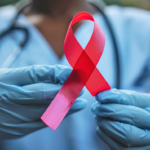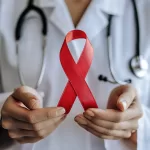With the advent in science and technologies, the surgical branch of medicine has expanded from simple surgeries to complex ones which involve putting new implants and devices in various body parts, high-tech robotic surgeries, and life-changing transplant surgeries. Though they have increased the life expectancy and improved the quality of life of patients, they may be associated with post-surgical infections as one of the complications associated with any surgery.
There are various reasons and risk-factors which are associated with these infections. These are either related to the patient or to the external environment. For example, patients who have poorly controlled diabetes, immunocompromising conditions or chronically sick and debilitated; are at higher risk of infections. External environment includes many factors. Appropriate use of surgical-site prophylaxis i.e. using proper antibiotics before the surgery, the choice of which varies according to the type of surgery and good infection-control measures by the surgical team are must.
Despite all the measures taken, infection may occur. They may vary from superficial skin infections to deep infections. Many a times these infections are limited to the surgical part/organ, however at times, they may get complicated and may even become life-threatening. Infections which are associated with implants inserted in the joints or pacemakers or ureter stents and other artificial devices; pose a big challenge to treatment as the infecting organisms make biofilms (like protective houses to escape the medicines and immune system) on these devices, weakening the effect of antibiotics. Infections after laparoscopic and endoscopic surgeries, like hysterectomy (uterus removal), hernia repair, cholecystectomy (gall-bladder removal) are seen more often now. Females who develop infections after caesarean section go through a lot of pain and stress.
Though not very common, infections after the cardiac procedures, like angioplasty (where stent is placed in the coronary artery) and bypass surgery are also encountered. These infections are disastrous as they may need removal of the infected stent and redo-surgeries.
Post surgical infections are not limited to those cited above, and can involve any organ or body part. Due to the complex nature of most of these infections and due to the decreasing efficacy of the previously used antibiotics, many a times higher antibiotics have to be used for the treatment. On the other hand, if the problem is approached scientifically and systematically, in many cases, just simple antibiotics can solve the problem easily.
There lies the role of an Infectious diseases specialist, who can identify the exact infection by the help of proper tests like cultures plan a systematic approach in coordination with the operating surgeon, and chose the best antibiotics tailored to the type of infection, taking into account the side-effect profile.
It has been proven in research that the involvement of Infectious disease doctors improves the final results in these kinds of infections and decreases mortality.
Don’t let post-surgical infections compromise your recovery. Contact Tathaagat Clinic today for expert care from our infectious diseases specialists.
Call us at +919664630466 to schedule your appointment.







